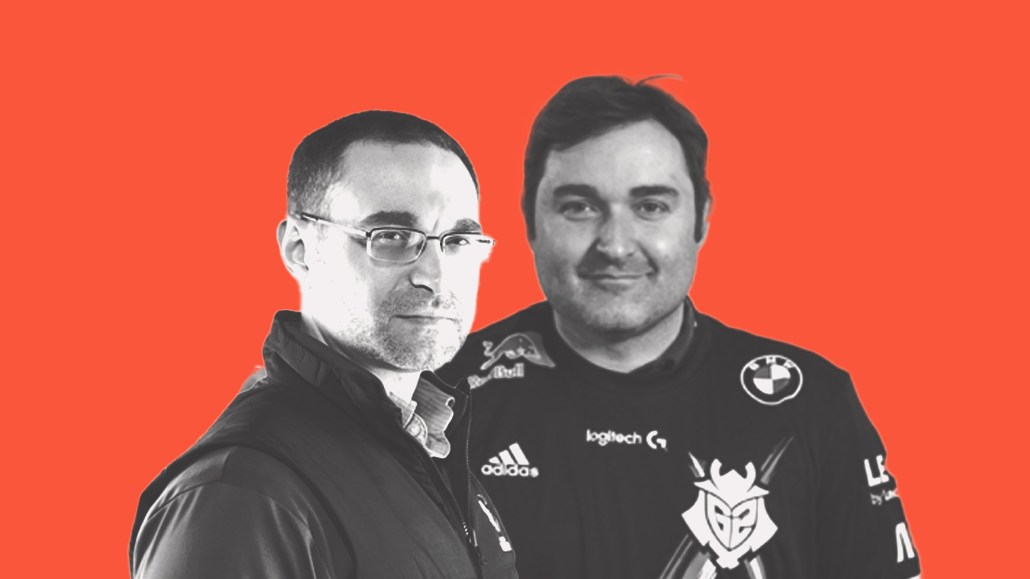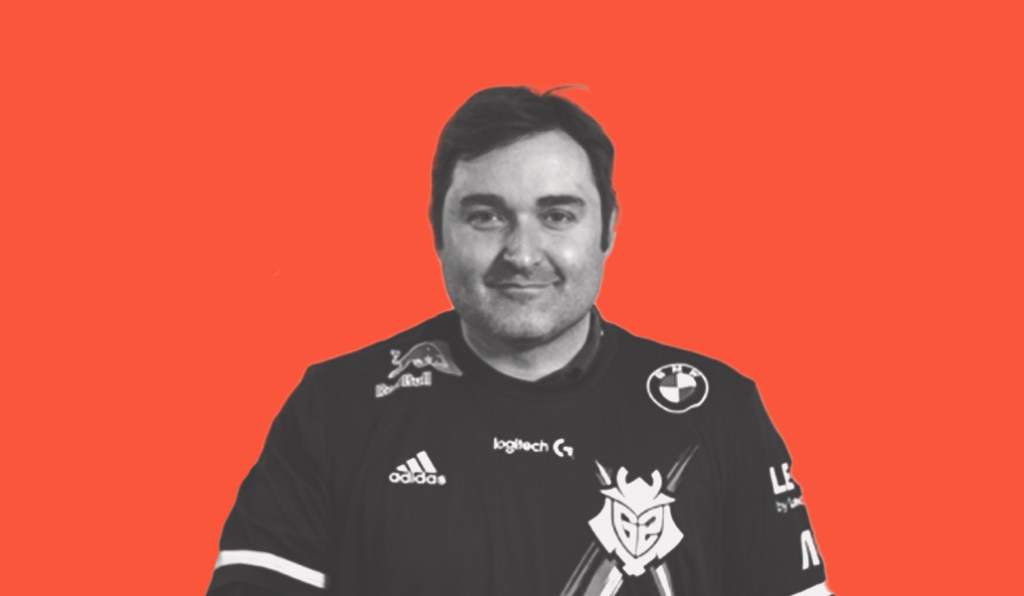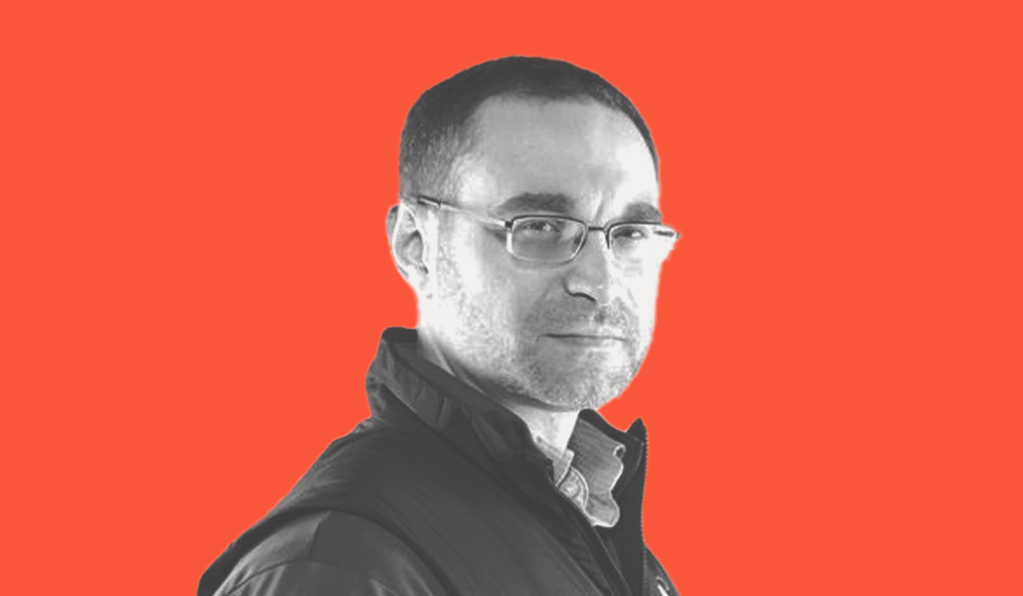Secure your place at the Digiday Media Buying Summit in Nashville, March 2-4
What G2’s strategic partnership with Version1 means for esports mergers in 2024

2024 is shaping up to be a year of M&A for the esports industry.
The past 12 months have seen a rise in esports mergers and acquisitions. As some teams face economic challenges, their larger rivals have taken esports winter as an opportunity to expand their portfolios into new esports titles and gaming communities. Going into the new year, this activity shows no signs of slowing.
Quite a few esports and esports-adjacent mergers and acquisitions have taken place over the last year. NRG acquired CLG, GameSquare acquired FaZe Clan and numerous other teams have made it clear that they are looking for opportunities to sell their franchised teams or otherwise divest from competitive gaming.
The latest example came last week, when G2 Esports announced that it was entering a strategic partnership with esports company Version1, which operates the Call of Duty League’s Minnesota Rokkr, in addition to other teams. The companies are making sure not to refer to the move as a merger or acquisition — G2 CEO Alban Dechelotte told Digiday that this would not be possible until each of his company’s 40 investors signed off on the move, likely in February — but G2 is effectively taking over operations of all of Version1’s esports properties, including its “Rocket League” and “Call of Duty” teams, as part of the deal.
The deal has almost certainly led to sighs of relief at the front offices of Version1, whose chief operating officer Brett Diamond openly shared his goal of finding an acquisition partner in an interview with Digiday earlier this year. In G2, Version1 has successfully found a partner with the scale and war chest necessary to keep its esports teams chugging along in 2024.
Digiday spoke to Dechelotte and Diamond for an annotated Q&A on the strategy behind the partnership — and how it could signal an uptick in esports M&A in the new year.
This interview has been lightly edited and condensed for clarity.
On the most appealing aspect of Version1 to G2 Esports:

Alban Dechelotte: “Honestly, it’s the Wilf family. We talked with the chairman of Version1, Jonathan Wilf, and he loves “Valorant,” he’s really passionate. So their long-term vision for esports, and their really nice words about the way we have built our organization — those are the most exciting things. Now, it means we are partnering with Gary Vee and them on the long-term to build something amazing, and having them as investors in North America, at a moment when the focus is to become the leading esports organization in North America, is a privilege.”

Digiday: It’s always good to have wealthy people in your corner, and particularly so in esports, so it’s not surprising to hear this from G2. Version1 was backed by Gary Vaynerchuk and the Wilf family — the owners of the NFL’s Minnesota Vikings. While the brand dollars going into esports might be slowing down, the leaders of both G2 and Version1 believe it’s only a matter of time until the esports industry truly finds its footing, and now G2 has the financial support to outlast the competition.
On Version1’s approach to finding potential acquisition partners

Brett Diamond: “At the start of the process, an obvious first step for us was talking with orgs that were not currently in the Call of Duty League, because that is a franchise league — that is a tangible asset in a way that non-franchise leagues are not. So the conversations really started there. Both Version1 and G2 had world championship aspirations in ‘Rocket League,’ and so we really didn’t start talking about the ‘Rocket League’ dynamic until a little bit later in the process, but we’re thrilled that we were able to align there.”

Digiday: As M&A ramps up in esports, expect the teams with franchised league spots to take advantage of the tangible value represented by these franchises. With price tags reportedly in the tens of millions, owning a franchised esports team can significantly boost esports orgs’ valuations on paper — although the collapse of franchised leagues such as the Overwatch League earlier this year might cast some doubt on the ongoing value of these spots.
Regarding G2’s continued focus on esports:

Alban Dechelotte: “We have always been very focused on esports. We don’t manufacture energy drinks, we don’t recruit hundreds of creators, we don’t produce keyboards. We’re just an esports organization, and we try do do this right — and doing this right is not spending more than we generate in terms of revenues. It sounds like a fundamental basic, but that’s why we have been profitable for the last two years, despite macro or micro hurdles.”

Digiday: Given Version1’s properties are largely focused on competitive gaming, it makes sense for the org to merge with an esports-focused company such as G2. Dechelotte’s statement on the matter pokes some light fun at rival esports org 100 Thieves, which spun off its energy drink and game development arms in November in a bid to refocus on esports.
On Version1’s presence in Minnesota following the deal:

Brett Diamond: “That’s to be determined, but it would not be the extensive presence in Minnesota that we’ve had in the past. The way I think about it is, so much of the premise for Version1 was obviously North American focused, with Minnesota Rokkr. Our first title was highly focused on Minnesota and building a local fan base in Minnesota as the jumping off point to a national fan base and potentially an international fan base. So it’s very much a ground-up approach that is very different when with an org that already has a national and international fan base.”

Digiday: Both Diamond and Dechelotte made it clear that Version1’s presence in Minnesota will be reduced following the deal, although the presence of teams like the Minnesota Rokkr make it necessary for G2 to continue to have a hand in the region. But the collapse of the Overwatch League, with its localized teams, has made it clear that regional markets — barring massive ones like New York City — are not necessarily a fruitful breeding ground for esports fandom. G2 is acquiring Version1 for its footprint in North America — not Minnesota in particular.
More in Marketing

Future of Marketing Briefing: AI’s branding problem is why marketers keep it off the label
The reputational downside is clearer than the branding upside, which makes discretion the safer strategy.

While holdcos build ‘death stars of content,’ indie creative agencies take alternative routes
Indie agencies and the holding company sector were once bound together. The Super Bowl and WPP’s latest remodeling plans show they’re heading in different directions.

How Boll & Branch leverages AI for operational and creative tasks
Boll & Branch first and foremost uses AI to manage workflows across teams.








